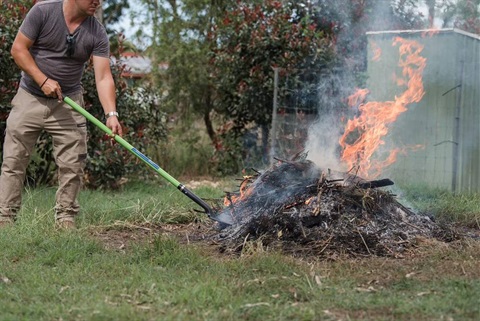Fire permits

Prior to ‘burning of dead and dry vegetation on the premises from which the vegetation grew’ an individual is required to obtain the approval of Council. All other approvals to burn can only be granted by the NSW Environment Protection Authority (EPA).
Applications for the burning of vegetation within lands identified as residential, are rarely approved unless there are exceptional circumstances (such as inaccessible lands). Councils expectation is that where vegetation waste can be accessed it should be removed off-site to an authorised waste facility or reprocessed and reused.
In assessing an application for Approval to Burn Council is guided by the following objectives:
- To minimise potential air pollution within urban environments and smoke impact on any person
- To ensure assessment outcomes are fair to our community balancing consideration of local climate, environment sustainability and community health.
- To encourage the re-use of green waste where feasible and reasonable
- To address Council’s statutory responsibilities in relation to open burning.
- To allow burning where there is no reasonable alternative to dispose of dead and dry vegetation on the premises from which the vegetation grew.
You may also require a Fire Permit from Fire & Rescue NSW or NSW Rural Fire Service.
You can apply for a Control of Burning application below:
Apply now